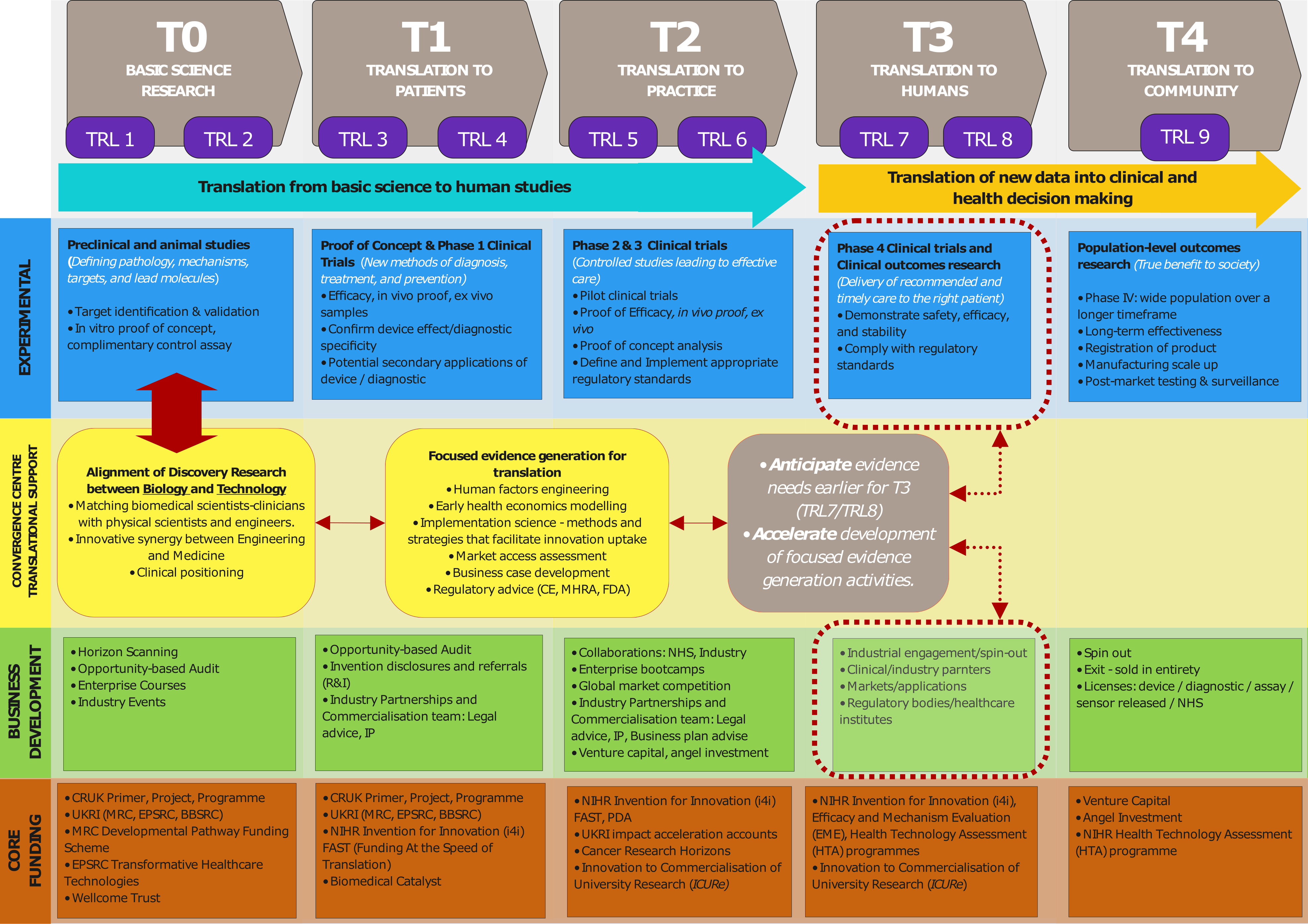Dissemination and implementation science
Dissemination and implementation science
Implementation science is the study of methods that influence the integration of evidence-based interventions into practice settings. Dissemination is the process of spreading knowledge and information to these settings.

Why is Dissemination and Implementation Science important to your research?
Our Dissemination and Implementation Scientist offers personalised support and advice from the outset of any translational project. This involves developing a roadmap and evidence base on how best to help ‘implement’ your diagnostic and health technology innovation within health services in London, nationally, and internationally. Activities includes: